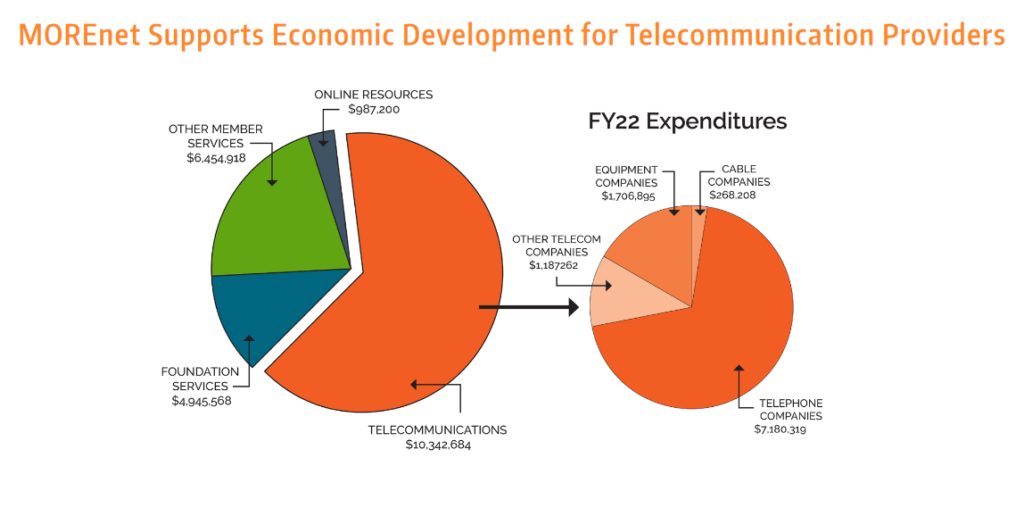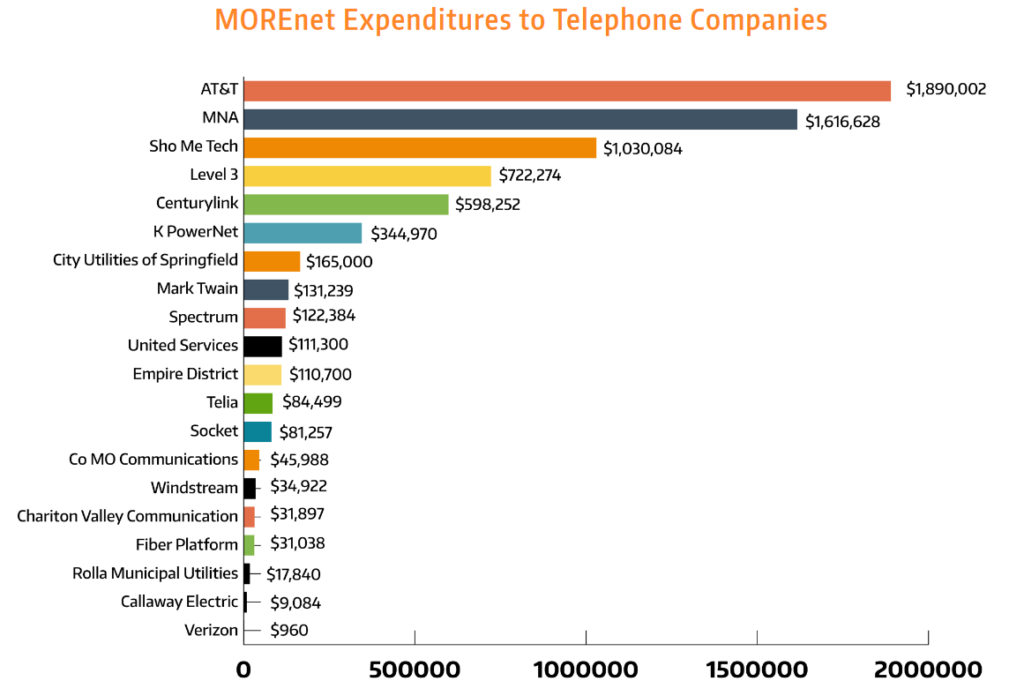MOREnet impacts the private sector by purchasing telecommunication services to provide the best network for our members at lower costs. We partner with these companies in five different ways.
Connecting Community Networks
Participating communities gain access to cost-effective connections to cloud services, proprietary networks, VOIP, and commercial security services for city and county governments and key employers.
The connection would allow regional ISPs and other service providers to cost-effectively connect to smaller markets including security monitoring, VOIP, and video programing. MOREnet then uses the resulting connections to support existing K-12, library, higher ed, and healthcare members in the community.
Certain projects allow MOREnet to acquire fiber to directly connect members, expand fiber networks to nearby communities, and control our own maintenance and operations cost models.
Transport Projects
For an entity with a connection to our network, MOREnet provides transport services to city and county governments, service providers, non-profits, NGOs and MOREnet members to cost-effectively connect defined end points in our network.
Public/Private Partnerships (PPP)
We form partnerships with other organizations to build open-access, middle-mile networks. PPP are favorable structures to seek federal funding showing collaborations, different groups served, and diverse project strengths. Projects may include shared middle-mile backbone projects to established communities of interest.
Internet Exchange Points (IXP)
Our goal is to build fiber into unserved and underserved areas and act as the neutral party managing and monitoring non-discriminatory, open, meet-point access to everyone at the internet exchange point. IXPs are both physical and logical points on the network with structure, diverse power, diverse connectivity, and routing and switching equipment.
In separate projects, MOREnet could build from the exchange point to support existing K12, library, higher ed, and healthcare members in these communities, expand our fiber network to nearby communities and control our own maintenance and operations cost models.
Community Network Membership
We are open to creating a new membership category to offer services to emerging community networks. This could include a subset of existing services and could add unique benefits pertinent to this constituency member group. Such services would be offered to the community network organization and not directly to their constituents.

We contract with private industry for its telecommunications services. All Internet connections and telecommunications lines that connect member sites are obtained from private companies doing business in Missouri in strict compliance with the University’s public procurement processes. Because all circuits are acquired through public bidding processes, companies compete, resulting in lower costs to our members.

